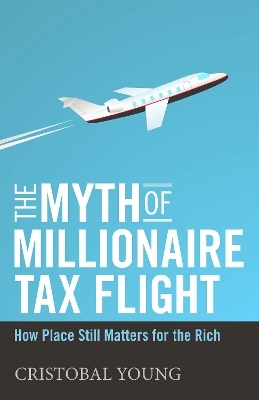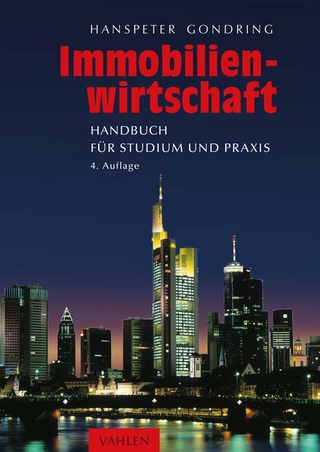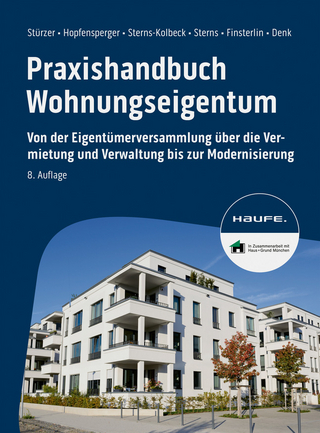
The Myth of Millionaire Tax Flight
How Place Still Matters for the Rich
Seiten
2017
Stanford University Press (Verlag)
978-1-5036-0114-7 (ISBN)
Stanford University Press (Verlag)
978-1-5036-0114-7 (ISBN)
In this age of globalization, many countries and U.S. states are worried about the tax flight of the rich. As income inequality grows and U.S. states consider raising taxes on their wealthiest residents, there is a palpable concern that these high rollers will board their private jets and fly away, taking their wealth with them. Many assume that the importance of location to a person's success is at an all-time low. Cristobal Young, however, makes the surprising argument that location is very important to the world's richest people. Frequently, he says, place has a great deal to do with how they make their millions.
In The Myth of Millionaire Tax Flight, Young examines a trove of data on millionaires and billionaires—confidential tax returns, Forbes lists, and census records—and distills down surprising insights. While economic elites have the resources and capacity to flee high-tax places, their actual migration is surprisingly limited. For the rich, ongoing economic potential is tied to the place where they become successful—often where they are powerful insiders—and that success ultimately diminishes both the incentive and desire to migrate.
This important book debunks a powerful idea that has driven fiscal policy for years, and in doing so it clears the way for a new era. Millionaire taxes, Young argues, could give states the funds to pay for infrastructure, education, and other social programs to attract a group of people who are much more mobile—the younger generation.
In The Myth of Millionaire Tax Flight, Young examines a trove of data on millionaires and billionaires—confidential tax returns, Forbes lists, and census records—and distills down surprising insights. While economic elites have the resources and capacity to flee high-tax places, their actual migration is surprisingly limited. For the rich, ongoing economic potential is tied to the place where they become successful—often where they are powerful insiders—and that success ultimately diminishes both the incentive and desire to migrate.
This important book debunks a powerful idea that has driven fiscal policy for years, and in doing so it clears the way for a new era. Millionaire taxes, Young argues, could give states the funds to pay for infrastructure, education, and other social programs to attract a group of people who are much more mobile—the younger generation.
Cristobal Young is Assistant Professor of Sociology at Stanford University. He studies how sociological dynamics shape the effects of public policies—especially policies meant to reduce inequality. His research has been featured in The Wall Street Journal, The New York Times, and USA Today, and he has contributed pieces to The New York Times Sunday Review and the New York Daily News, among others.
1. Millionaire Taxes in a World with Few Borders
2. Do the Rich Flee High Taxes?
3. Global Billionaires and International Tax Havens
4. Place as a Form of Capital
5. Millionaires and the Future of Taxation
| Erscheinungsdatum | 26.10.2017 |
|---|---|
| Reihe/Serie | Studies in Social Inequality |
| Zusatzinfo | 9 figures, 2 maps |
| Verlagsort | Palo Alto |
| Sprache | englisch |
| Maße | 140 x 216 mm |
| Themenwelt | Recht / Steuern ► Steuern / Steuerrecht |
| Sozialwissenschaften ► Soziologie ► Allgemeine Soziologie | |
| Sozialwissenschaften ► Soziologie ► Makrosoziologie | |
| Wirtschaft ► Betriebswirtschaft / Management ► Rechnungswesen / Bilanzen | |
| Betriebswirtschaft / Management ► Spezielle Betriebswirtschaftslehre ► Immobilienwirtschaft | |
| ISBN-10 | 1-5036-0114-5 / 1503601145 |
| ISBN-13 | 978-1-5036-0114-7 / 9781503601147 |
| Zustand | Neuware |
| Informationen gemäß Produktsicherheitsverordnung (GPSR) | |
| Haben Sie eine Frage zum Produkt? |
Mehr entdecken
aus dem Bereich
aus dem Bereich
Handbuch für Studium und Praxis
Buch | Hardcover (2023)
Vahlen (Verlag)
79,00 €
warum Rene Benkos Immobilienimperium zusammenbrach und was dem …
Buch | Hardcover (2024)
FinanzBuch Verlag
22,00 €
von der Eigentümerversammlung über die Vermietung und Verwaltung bis …
Buch | Softcover (2024)
Haufe (Verlag)
39,99 €


